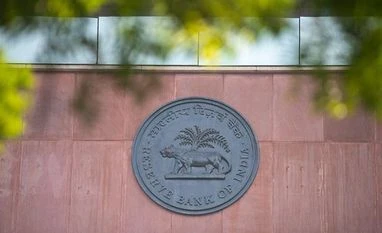The Reserve Bank of India (RBI) on Monday superseded the boards of Srei Infrastructure Finance and Srei Equipment Finance, which will be taken for insolvency proceedings owing to governance concern and payment defaults by them.
This is the second instance of the RBI superseding a finance firm’s board. Earlier, it had taken such action in the case of mortgage lender DHFL, which is now after successful resolution under the wing of Piramal Enterprises.
According to estimates, banks have about a Rs 28,000-crore exposure to Srei and bond holders another Rs 18,000 crore. Analysts expect a steep haircut as part of the resolution. A Srei spokesperson said the company was “shocked” at the decision and would pursue all legal options.
In a statement, the RBI said it had appointed Rajneesh Sharma, former chief general manager of Bank of Baroda, administrator of the companies.
It will initiate the process of resolution of the two non-banking financial companies under the Insolvency and Bankruptcy Rules, 2019. It will also apply to the National Company Law Tribunal (NCLT) for appointing the administrator insolvency resolution professional.
The regulator has appointed a three-member advisory committee to advise the administrator. The members are R Subramaniakumar, former managing director and chief executive officer of Indian Overseas Bank; T T Srinivasaraghavan, former managing director of Sundaram Finance; and Farokh N Subedar, former chief operating officer of Tata Sons.
Subramaniakumar was administrator for the resolution of DHFL. The resolution spanned 18 months before Piramal took control in the last week of September. Appointing an advisory committee for the administrator during the corporate insolvency resolution process is allowed under the Insolvency and Bankruptcy Code.
A Srei spokesperson said banks were in control of an escrow account of Srei and they did not notify any default.
According to the spokesperson, Srei had submitted a proposal to pay the full amount to the banks under a scheme. However, the banks have neither accepted the scheme nor proposed a payment schedule acceptable to them, the spokesperson alleged.
Banks have been controlling the company’s cash flow since November 2020, and about Rs 3,000 crore has been collected by them.
“There has never been any delay in loan servicing by Srei in the past before Covid-19 ravaged the country. We are surprised because the NCLT order for all creditors is still in process. There is also an order for ‘no coercive measures’ by the creditors and/or regulators,” the Srei spokesperson said, adding, the group would take “all necessary steps as advised by our lawyers”.
According to a report by CNBC TV-18, a UCO-Bank led consortium of lenders had reached out to the RBI, seeking a DHFL-like resolution for Srei.
Apart from UCO, other banks with substantial exposures to Srei are State Bank of India, Bank of Baroda, Bank of India, Indian Bank, Punjab National Bank, Axis Bank, Canara Bank, and Union Bank of India.
There was a stay on banks from recognising the exposure to Srei Infrastructure and Srei Equipment as bad debt until a scheme of arrangement was signed by all creditors, including banks and bondholders. That stay was lifted in September, and now banks will earmark the exposure as bad debt.
Several banks may have done it in the September quarter, the CNBC TV-18 report suggested.
What next?
A senior banker said dragging a company to insolvency did not mean a resolution was imminent, or the promoters could not get back the company.
“It is a potent tool in the hands of lenders now. Srei is no stranger to the NCLT either. It has used the platform many times to recover its dues,” said the banker.
While the DHFL resolution took 18 months, the time needed for Srei should not be that long. The RBI did a special audit a year ago, following which Srei had to make provisions for a stressed loan portfolio. The forensic audit is also underway and expected to be completed soon, said the head of risk management with a private bank.
Srei Equipment Finance, in particular, had some suitors. US-based Arena Investors LP had in June expressed an investment interest of Rs 2,000 crore, and Singapore-based Makara Capital had offered Rs 2,200 crore.
Unlock 30+ premium stories daily hand-picked by our editors, across devices on browser and app.
Pick your 5 favourite companies, get a daily email with all news updates on them.
Full access to our intuitive epaper - clip, save, share articles from any device; newspaper archives from 2006.
Preferential invites to Business Standard events.
Curated newsletters on markets, personal finance, policy & politics, start-ups, technology, and more.
)